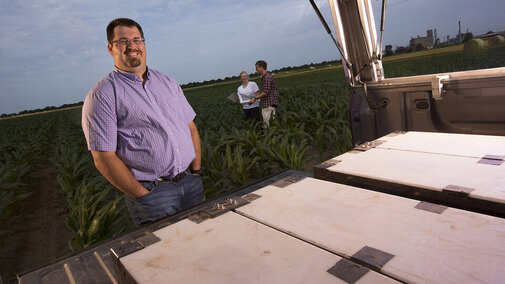Agriculture’s future in Nebraska and globally will depend in great part on efficient water use. A research paper by University of Nebraska–Lincoln scientists points to an innovative irrigation approach that offers promise to decrease water use while increasing producer profitability.
Traditionally, the level of needed irrigation has generally been determined by gauging water availability in the soil. An irrigation-scheduling algorithm developed through testing at 12 locations across Nebraska includes an additional factor — the level of water concentration in the atmosphere.
That approach “takes both the water supply and demand into consideration, and that’s where we’re hoping to gain some efficiency by looking at both simultaneously,” said Trenton Franz, associate professor of hydrogeophysics at Nebraska. “That’s fairly complicated, so this algorithm does a fairly nice job of trying to basically optimize the processes, as well as making it more automatic.”
In an article in the journal Nature Communications , Franz and co-authors found that the algorithm-guided irrigation approach could reduce irrigation water use by 24% while maintaining crop yields and increasing profits by 11.2% and water productivity by 25.2%. As a result, the article said, this new methodology “could significantly improve water sustainability.”
To learn more about the team’s research, read this article at IANR Media.

